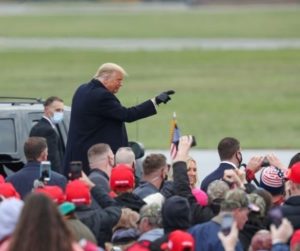A Plant-Based Bubble
What a busy week in the world of plant-based food. Cashing in on the latest craze, Kroger announced that it would be launching a Simple Truth private-label product called Emerge: Plant-Based Fresh Meats. The grocery chain will sell burger patties and ground meat made of pea-based protein over a 16-week period at 60 outlets in two major markets. This comes a year after the company introduced vegan chocolate chip cookie dough and sausages. Overall, Kroger wants to add 50 items to its plant-based inventory this year.
Impossible Burger confirmed that it would be adding plant-based pork to its menu, and then target vegan alternatives to fish, goat, and lamb. It will supply Burger King with meat substitutes. Who else will adopt the plant-based craze this month or what other innovation will take place in 2020? Better yet, with everyone hopping on the soybean, pea, or wheat bandwagon, is there a bubble forming?
 First, it is important to define what an economic bubble is. Since the financial crisis, we have heard a lot about bubblemania or the everything is a bubble market. So, what is it? It is typically when asset prices are inconsistent with the fundamentals or they are based on overly generous views about the future.
First, it is important to define what an economic bubble is. Since the financial crisis, we have heard a lot about bubblemania or the everything is a bubble market. So, what is it? It is typically when asset prices are inconsistent with the fundamentals or they are based on overly generous views about the future.
A recent UBS report projected that the plant-based industry would be worth more than $85 billion in the next decade. A separate independent analysis predicted the plant-based meat market could be valued at $41 billion a year in just the U.S. alone. Beyond Meat, one of the major initial public offering (IPO) darlings of 2019, has a market capitalization of $5.55 billion – and growing. McDonald’s, Subway, TGI Fridays, White Castle, Red Robin, and so many other fast food brands are incorporating vegan meats into their menus. It is the vegan version of Tulipmania!
There is no denying that the vegan market is booming. These companies are introducing meat substitutes for a reason: consumer demand. They are not doing it for kicks or to troll meat-eaters. Whether it is McDonald’s or Burger King, it is all about capturing market share. For now, it does not appear that the faux meat market is in a bubble just yet – veganmania will continue to run wild.
A Union in Holy Whining
Here we go again. It has become cliché at this point for media outlets, politicians, and leftist organizations to gripe about executive compensation. With a new year here, it is time for the AFL-CIO union to complain again about CEO pay compared to worker earnings.
Citing the Securities and Exchange Commission (SEC) data, the average CEO of an S&P 500 company earned more than the typical employee does in a year on just the second working day of 2020. The heads of these businesses are paid an average of $14.5 million, which is the equivalent of $278,846 per week or $55,769 per business day.
Why is this important? From the organization’s Executive Paywatch analysis:
“A higher ratio could be a sign that companies suffer from a winner-take-all philosophy where executives reap the lion’s share of compensation. A lower ratio could indicate which companies were dedicated to creating high-wage jobs and investing in their employees for the company’s long-term health.”
Or, it might mean that the board of governors hired a CEO who they thought could boost revenues, pad the bottom line, and increase the share price on the New York Stock Exchange – three ingredients that benefit everybody. Corporations do not just throw out a randomly high figure when remunerating a chief executive. Instead, they want to hire the best and brightest to take the company to the next step or perhaps turn things around. When Disney CEO Bob Iger steps down from his role next year, you can bet large companies will offer him a blank check for his services and expertise, mainly because he transformed Disney into a superpower. If he mirrors this success at Kramerica Industries, then seniors can receive a bigger dividends check every three months.
Indeed, if you think about the salary of a CEO for more than two seconds, you are wasting your time.
Tariffic or Tariffying?
For the White House, there is some good news and some bad news.
The good news? According to the Bureau of Economic Analysis (BEA), the U.S. trade deficit narrowed to a three-year low of $43.1 billion in November, representing the third straight month of declines in the gap. Imports fell 1% to a two-year low of $252 billion, while exports edged up 0.7% to $209 billion. The huge aspect of the report was the goods trade gap with China tumbling 15.7% to $26.4 billion as imports plunged 9.2% and exports soared 13.7%.
The bad news? The latest Department of Commerce data highlighted that the Trump tariffs have cost American businesses approximately $46 billion since February 2018. An estimated $37.3 billion of these tariff costs originated from taxes on imports from China. Also, exports of American goods affected by retaliatory duties from China and other trading partners declined by 23% in the 12 months ending November 2019 compared to the same time in 2017.

Donald Trump (Photo by Tayfun Coskun/Anadolu Agency via Getty Images)
While President Donald Trump seemingly has made progress on an agreement with China, the trade dispute may have done a lot more damage to the U.S. economy than he would have liked. There have also been some other unintended consequences, too. Throughout the trade war, for example, many companies have sought exemptions from the tariffs, or if you are a big company like U.S. Steel then you have tried to block small businesses’ exemption requests. The result? The Commerce Department has been transferred the responsibility of picking winners and losers.
To get a better understanding of protectionist acolytes, look no further than a recent op-ed in The Wall Street Journal, titled “I Support Trump’s Tariffs but Need an Exemption.” Robert Wetherbee, head of metal fabrication and manufacturing firm Allegheny Technologies, wrote that “Tariffs are blunt instruments and have also harmed many American companies.” He added, “Our Midland [Pennsylvania] plant is hemorrhaging money.” Is he calling for an end to the tariffs? No. Wetherbee wants everyone else to pay for them while he gets special treatment.
Reason wonderfully summarized his opinion piece:
“At least there’s one good thing to come from this: There is no better snapshot of the current state of Trump’s trade policies than a CEO proclaiming that the president’s tariffs are great while simultaneously begging to be saved from them.”
Me Two
It is official. The U.S. economy added 145,000 new jobs in December, leaving the unemployment rate unchanged at a 50-year low of 3.5%. This means that for the ninth straight year, the country created more than two million jobs. In 2019, 2.11 million positions were produced, slightly down from 2.18 million in 2018. Last month, most of the job gains were situated in retail (41,000), hotels and restaurants (40,000), health care (28,000), and construction (20,000). Manufacturing weakened by 6,000, while government payrolls ballooned 12,000. It was a soft labor update, but job creation continues.
~
Read more from Andrew Moran.




